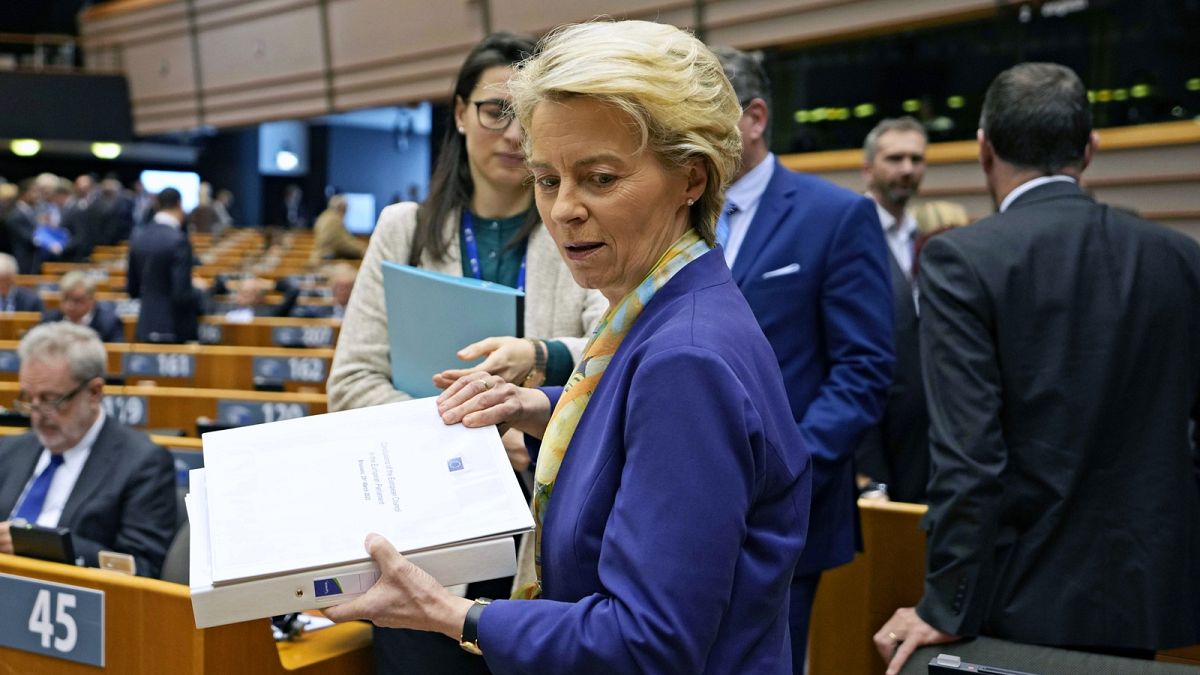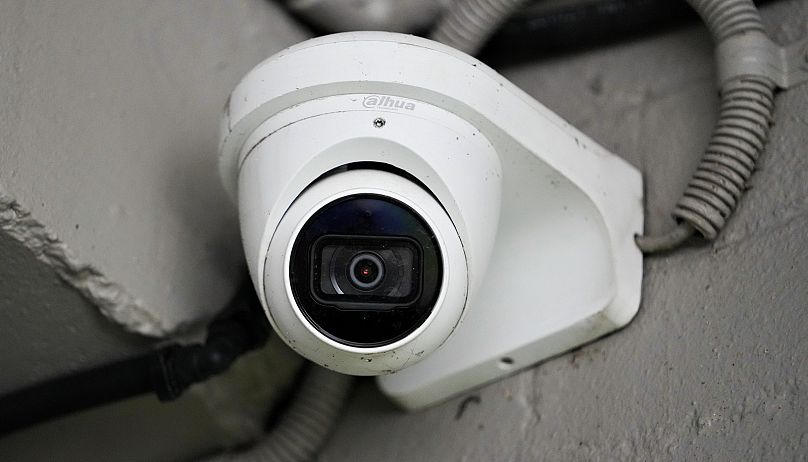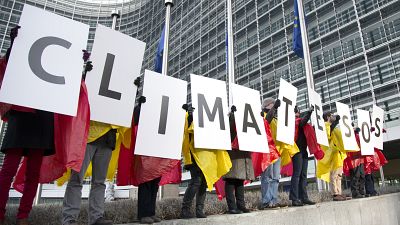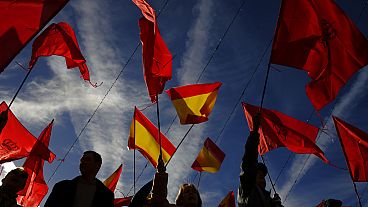After a month-long summer break, the European Union is back to work.
It's officially the rentrée for the EU as glowingly tanned, freshly revitalised eurocrats return to Brussels this week after deserting the Belgian capital for the summer holidays.
And this first week of September feels all the most momentous as the bloc approaches the next election to the European Parliament. With the ballot scheduled to be held between 6 and 9 June 2024, the institutions are now gearing up for a final push to wrap up the main pending tasks before going into full-time campaign mode.
With the clock ticking, Euronews breaks down the EU's to-do list.
The promise made to Kyiv
From the energy mix to defence spending, the fallout of Russia's war on Ukraine has prompted a profound rethink of most elements of EU policy, with radical proposals that a few years ago would have been unimaginable.
Not all the questions have been answered, though.
In June last year, member states took the bold step of granting Ukraine the coveted status of candidate country. The moment was hailed as a geopolitical victory for the war-torn nation and a strong rebuke of the Kremlin's imperialism. But Kyiv now wants Brussels to prove that good intentions are more than words.
The European Commission is set to release its enlargement report in October, the first time the executive will publish a thorough, detailed assessment of Ukraine's progress in its membership path. The findings will be used by EU leaders to unanimously decide whether they open formal accession talks with Kyiv or ask for additional conditions.
President Volodymyr Zelenskyy and his deputies have insisted the negotiations should begin before the end of the year, an ambitious timeline that suggests any hesitation in Brussels will be met with nothing but fury.
Watch out for the European Council to be held between 14 and 15 December.
Also on the to-do list are a new €20-billion plan to provide Kyiv with military support on a long-term, predictable basis, and the ongoing dispute with tariff-free imports of Ukrainian grain, which have become enormously controversial in Eastern Europe.
The Kremlin's hefty bill
The motto "make Russia pay" has officially become EU jargon. It refers to using Russian-owned assets, both private and public, to pay for the reconstruction of Ukraine, which the World Bank estimates to cost at least $411 billion (€380 billion).
In the case of the EU, the main focus is on the €200 billion in assets of the Russian Central Bank that have been immobilised as a result of the financial sanctions.
Since this money cannot be confiscated under international law, Brussels initially floated a plan to re-invest the central bank's reserves and channel the yearly proceedings into rebuilding Ukraine. Later, that project morphed into an undefined tax on the windfall profits reaped by the custodians of the assets, which the European Commission promised to unveil before the summer break – and then didn't.
The delay was far from surprising: the European Central Bank, financial experts and legal scholars have all raised serious concerns about the unprecedented initiative, warning the unilateral move could trigger financial instability and damage the euro's credibility.
Mindful of the criticism, the Commission said it would stick to the plan but act "prudently." After raising such high expectations, it's hard to see Brussels making a complete U-turn so we should expect to see a full-fledged proposal, even if watered-down to a fault, in the coming months, possibly before December.
And another pending task: sanction the import of Russian diamonds once and for all.
Money makes the EU go round
Money – we all want it. But where can we get it from?
This burning question will define the political debate between now and the elections. The European Commission has proposed a top-up of €66 billion to the bloc's seven-year-long budget in order to deal with new challenges, including €17 billion in grants for Ukraine, €15 billion for migration management, €10 billion to finance strategic technologies and €18.9 billion to pay for the debt incurred with the COVID-19 recovery fund.
While establishing the so-called "Ukraine Facility" has garnered ample support among member states, the primary backers of the budget, the thought of coughing up almost €50 billion in additional expenses has received a tepid response from governments, whose public coffers are in a rough state after back-to-back crises.
Adding fuel to the fire, the budget talks will take place in parallel to another crucial debate: the reform of the EU's fiscal rules, which have been suspended since the onset of the pandemic and need to be overhauled before their reactivation in January 2024.
The proposal on the table maintains the long-standing limits of 3% for deficit-to-GDP and 60% for debt-to-GDP and introduces a greater deal of flexibility and ownership to help member states sanitise their finances according to their national specificities.
The approach has been welcomed by highly indebted countries like France, Italy and Spain, but has raised the suspicions of Germany, the Netherlands and Denmark, who want to see stronger guarantees to slash debt levels. Expect a feisty fight.
The migration taboo, finally broken
For years, migration policy was the no-go area of EU policy. Successive efforts to design a common and coordinated framework to deal with the arrival of migrants were bound to instant failure. Member states were too far apart to even have a proper conversation.
But earlier this year, progress on the "New Pact on Migration and Asylum," a long-stalled proposal that encompasses and remakes the main pillars of migration policy, started to be made.
The first major breakthrough arrived in June when home affairs ministers reached a preliminary deal on a system of "mandatory solidarity," designed to make all member states, regardless of their collection and economic weight, responsible for the reception and relocation of asylum seekers. The deal broke the perennial impasse and kicked off formal negotiations between the EU Council and the European Parliament, which must now agree on the details of the complex legislation.
If the momentum is sustained, the bloc could very well have its first-ever collective system of migration management by the time EU citizens go to the polls.
Green dreams are made of this
Shortly after Ursula von der Leyen became president of the European Commission, she stood before the press to present the European Green Deal, an exceptionally ambitious and radical undertaking to irreversibly transform the bloc's economy, reinvent our consumption patterns and achieve climate neutrality by 2050.
"This is Europe's 'man on the moon' moment," von der Leyen said in December 2019.
Almost four years later, the Green Deal has become tangible thanks to a raft of legislative proposals that member states and MEPs managed to approve, such as a phased-in ban on the combustion engine, a tax on polluting imports, beefed-up targets for energy efficiency and a €300-billion plan to wean the bloc off Russian fossil fuels.
This has led to a surge in renewables: wind and solar power produced more electricity than gas in 2022, a first in the bloc's history. Meanwhile, the energy crisis has amplified savings patterns in both households and industry, diminishing demand.
But the EU has seen a growing backlash against environmental policies, as exposed by the bitter political fight over the Nature Restoration Law, which barely survived a knife-edge vote in the European Parliament.
The contentious law is one of the last pieces in the Green Deal's pipeline, together with the revision of the Renewable Energy Directive (RED), a reform of the electricity market, and an industrial strategy to boost the domestic production of net-zero technology.
The issue of nuclear energy, led by France, permeates all these conversations.
The tech on everybody's lips
Member states and MEPs are knee-deep in negotiations for the Artificial Intelligence Act, which aims to ensure the development of human-centric, ethically responsible and environmentally sustainable AI systems across Europe.
The law would introduce a pyramid-like structure that splits AI-powered products according to their potential risks to society and imposes different market rules to prevent unintended consequences, such as violations of fundamental rights, discrimination, plagiarism, impersonation and the spread of disinformation.
Since its presentation in April 2021, the AI Act has been subject to intense lobbying, media scrutiny and political bargaining, with MEPs filing thousands of amendments to the original text. The abrupt emergence of chatbots, like OpenAI's ChatGPT and Google's Bard, drastically changed the equation and piled pressure on negotiators to reach an agreement before the end of the year.
One of the points of contention remains the deployment of real-time biometric identification in public spaces. The European Parliament is keen to ban the practice altogether, while member states want to retain exceptions for law enforcement.
If eventually passed, the AI Act will become the world's first law to rein in the excesses of this ever-evolving technology in a comprehensive manner.
Bonus tasks
The EU's to-do list doesn't end here: a not-so-little pile of legislative files is hoping to reach a successful conclusion before the 2024 elections.
The order of business includes, among others, the Critical Raw Materials Act, a law to reduce dependency on foreign suppliers of rare earths; the Media Freedom Act, which aims to protect European journalists from spyware and political interference; and an ethics body to crack down on corruption across the EU institutions; as well as a renewed push to finally complete the EU-Mercosur free trade deal, which has been more than 20 years in the making.





